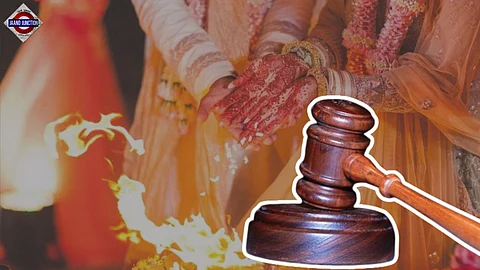

Calling it an “uncomfortable truth”, Supreme Court judge Justice Surya Kant said that marriage, across cultures and eras, has been "misused as an instrument of subjugation against women", although contemporary legal and social reforms are gradually redefining it as a partnership of equality and respect.
“Across continents, cultures and eras, marriage has too often been misused as an instrument of subjugation against women,” he said while speaking at a seminar on 'Cross-Cultural Perspectives: Emerging trends and challenges in family law in England and India'.
"While this remains an uncomfortable truth, contemporary legal and social reforms in both jurisdictions are gradually transforming marriage from a site of inequality into a pious partnership grounded in dignity, mutual respect, and constitutional values of equality," he added.
Justice Surya Kant went on to say that in India, both the judiciary and the legislature have taken steps to create legal frameworks that protect the rights of women.
He went on to say that in earlier times, marriage in India was regarded "not as a civil contract but as a sacred and enduring sacrament”, while adding that in pre-colonial times, family relations were governed more by social and moral norms than by codified law.
On cross-border matrimonial disputes, he noted that the Supreme Court has issued detailed guidelines on recognising foreign divorce or marriage-related judgments.
"However, it has also been expressly held that such judgments would not be recognised in India if they were obtained by fraud, or if they contravened the principles of natural justice or the substantive laws of this country," the Supreme Court judge said.
He further added that these disputes become more complicated when children are involved. In such cases, courts must respect the principle of Comity of Courts, ensuring mutual cooperation between jurisdictions, while prioritising the welfare of the child.
